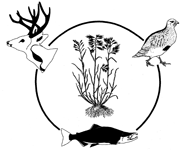Extension Wildlife & Fisheries Specialists Conferences

Triennial National Wildlife and Fisheries Extension Specialists Conference: 8th (1996)
Date of this Version
6-1-1996
Document Type
Article
Abstract
Private lands are the new frontier for managing wildlife that covers two-thirds of the United States, provides habitat for 85% of wildlife, and offers opportunities for outdoor recreation. Wildlife and recreation are increasingly viewed as a product of agricultural and forest lands rather than by-products. The role of landowners to manage wildlife on private lands and the incentives to do so are unclear. Historical conflicts between governments and landowners make working together a new challenge. The "debris" of controversy erodes the building blocks for solutions; thus, debates about governmental controls over wildlife must be replaced with the pragmatic recognition that private landowners control the fate of habitats, wildlife, and recreation on private lands. Wildlife administrators must face these changing times and enable the private sector to assist with the governments' missions by enabling the private sector to become guardians and stewards of resources. A new age of trust, empowerment, enfranchisement, and cooperative planning should herald in programs for habitat, wildlife, and recreation management in the new frontier of private lands management for wildlife and recreation. Recommendations are offered.


Comments
Published in W. Daniel Edge, ed. Proceedings of the 8th National Extension Wildlife and Fisheries Specialists Workshop: Educational Challenges for the 21st Century. [1996] Corvallis, Oregon: Oregon State University, 1998.